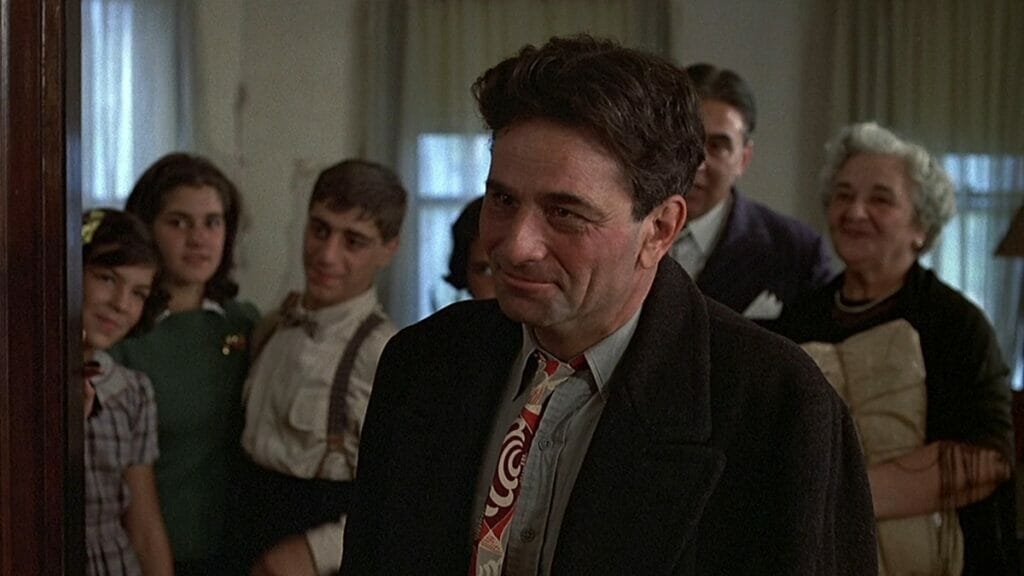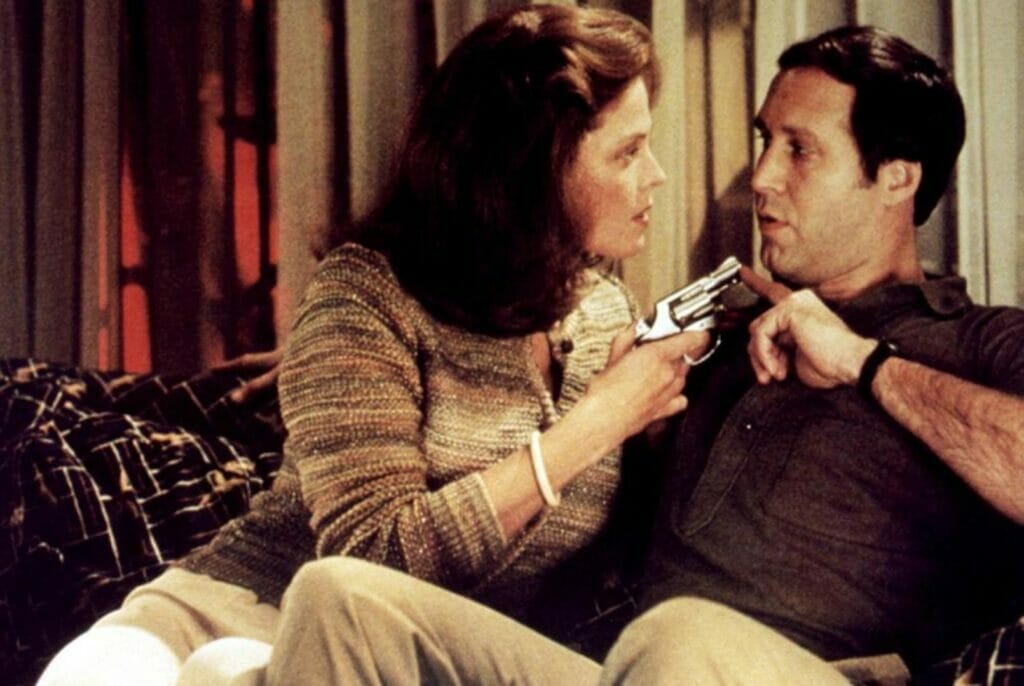The director meets with decidedly mixed results when he attempts to swap intensity for guffaws in these two efforts.

Every month, The Spool chooses to highlight a filmmaker whose works have made a distinct mark on the cinematic landscape.
The funny thing about William Friedkin is that if you ask six people what their favorite Friedkin film is, you’ll get six different answers. These hot and cold responses marked Friedkin’s career overall, one that, for all its faults and stumbles, was never predictable or boring. He had no trademark and refused to be pinned down.
This piece was written during the 2023 SAG-AFTRA strike. Without the labor of the actors currently on strike, the works being covered here wouldn’t exist.
Often celebrated as a master of generating the kind of tension and suspense that could keep even the most jaded moviegoers on the edges of their seats, audiences and critics rarely accused the late William Friedkin of having a light and whimsical touch. Yes, a number of his films contained moments of humor. Still, they tended to be either of the darkest variety imaginable (late-period masterwork Killer Joe, for example) or brief asides. Nevertheless, there were a couple of points in his career when Friedkin felt compelled to demonstrate his comedic touch. Perhaps not unexpectedly, the results were a bit odd.
The first arrived in the wake of a particularly turbulent time in the late 70s. At the time, Friedkin—whose career had hit stratospheric heights with the back-to-back triumphs of The French Connection and The Exorcist—found himself reeling from the massive failure of the future cult classic Sorcerer. Further complicating matters was his inability to get an adaptation of Ron Kovic’s memoir Born on the Fourth of July starring Al Pacino before cameras.
In its place, he turned to an odd Dino De Laurentis project John Frankenheimer had been putting together. The Brink’s Job, inspired by a famous real-life 1958 crime, revolved around some lowlife crooks from Boston’s North End. They managed to steal upwards of $1.5 million from the Brink security company during a time when that seemed impossible. It exposed Brink’s reputation as a supposedly iron-clad operation to be little more than hot air and empty promises. As a result, the crime captured the public’s imagination and J. Edgar Hoover’s attention. The latter proclaimed it the “crime of the century” and vowed to catch the perpetrators. Eventually, the authorities did deliver on the pledge, and all the criminals served several years in prison. However, the government only recovered about $50,000 from the heist.

One can imagine a gritty, no-nonsense take on this material. However, Sorcerer collaborators Friedkin and screenwriter Walton Green elected to make The Brink’s Job more broadly comedic. In his autobiography, The Friedkin Connection, he cites the Italian comedy favorite Big Deal on Madonna Street—the story of a group of incompetent criminals struggling to break into a safe—as an influence. To further underscore the comedic concept, Friedkin cast Peter Falk as ringleader Tony Pino. Casting then surrounded Falk with the likes of Peter Boyle, Paul Sorvino, Allen Garfield, and Warren Oates as his cohorts and Gena Rowlands as his loyal wife.
Although The Brink’s Job contains a few serious moments in the latter half, the emphasis is lighter. Even as the guys go to jail in the end, crowds cheering in the streets fête them. It is perhaps the closest Friedkin ever came to providing viewers with a happy ending.
As someone for whom comedy didn’t come easily, Friedkin sometimes overcompensates in his efforts. There are times when the film feels like a road company production of Guys and Dolls sans the nuance. At one point, Tony tries to convince his wife that he didn’t steal the refrigerator he turned up with in the middle of the night, despite the half-eaten turkey inside. Similarly, Falk tries just a little too hard to be lovable throughout. While the results are entertaining enough, he often plays more like a caricature than a character.
And yet, despite it being clear Friedkin is not 100% comfortable with the material, his work is not without interest. He shot the film in several of the real-life Boston locations, adding a quiet layer of verisimilitude that contrasts nicely with the broader storytelling aspects. Though perhaps too goofy at times, there are a number of undeniably funny moments. The cast—with Oates as the film’s best—is clearly having a good time as they spark off each other.
Despite it being clear Friedkin is not 100% comfortable with the material, his work is not without interest.
Friedkin’s sardonic final point also amuses. Sure, the FBI did eventually catch the thieves. However, they spent many millions more to nab them than was stolen in the first place. And after all that effort? They only got back a fraction of the money.
Alas, the film did not break him out of his slump. Nor did his next effort, 1980’s controversial and financially underperforming Cruising. Add in a heart attack later that same year, and his once red-hot career ground to a virtual standstill. He would stay sidelined for three years before climbing back into the director’s chair.
The project was Deal of the Century, a dark comedy about arms dealers. Originally intended to be helmed by screenwriter Paul Brickman, he had to step aside due to reshoots on a little feature called Risky Business, his directorial debut. A film satirizing arms dealers and defense contractors wreaking havoc in Third World countries for a bloodstained buck amid Ronald Reagan’s own Central American misadventures had a certain nerve to it. Or, at least, it did on paper. Although the darker and angrier tone to the comedy would seem more up Friedkin’s alley, he proved to be even more out to sea with Deal than The Brink’s Job.
Although the darker and angrier tone to the comedy would seem more up Friedkin’s alley, he proved to be even more out to sea with Deal than The Brink’s Job.
Eddie Muntz (Chevy Chase), a third-rate dealer peddling guns to struggling mercenaries, becomes the unlikely middleman for a major defense contractor. They’re hoping to unload their seriously defective new product—a pilotless fighter plane called The Peacemaker—on the military junta of the fictional country of San Miguel. The original broker was driven to suicide while trapped in his hotel room for weeks waiting for that final phone call confirming the deal, so there’s an opening. Complications arise when the original broker’s wife wants in on the deal. Worse, Eddie’s partner Ray, having experienced a religious conversion resulting from his guilt over his job, steals the plane and threatens to use it on the other death merchants.
Much of the pasted across-the-board film’s criticism revolved around the decision to cast Chase as Eddie. Admittedly, he is miscast. Considering the generally unlikable nature of the part, it’s a role that requires a much more subtle performance than Chase was able to muster at that point. He does score a few laughs here and deserves some credit for at least trying to do something a little different than his then-typical output. If nothing else, it is at least somewhat better than the dire likes of Oh Heavenly Dog, Modern Problems, and the infamous Under the Rainbow.
The real problem is that this material requires just the right tone for it to succeed. Deal of the Century asks viewers to laugh at things that most do not find typically humorous. Friedkin never finds that tone. Some scenes try to approximate the black comedy extremes of a Dr. Strangelove while others—especially an early one in which Muntz holds a demonstration of some of his wares to prospective buyers—feel like SNL skits. The whole climax offers little more than the sight of lots of things blowing up.

There is also a level of brutality that seems at odds with a PG-rated comedy, even one about arms dealers. At one especially ghastly point, Eddie is shot in the foot in a fairly realistic manner. Later, the other dealer’s gun-wielding widow (Sigourney Weaver, in a mostly thankless role), inadvertently shoots him in the same foot. This leads to a lot of spurting blood until a cork finally stops up the wound. It sounds funny in theory, but all you sense is the pain and none of the potential humor.
Deal has a couple of funny scenes, including a brief but nifty turn by Wallace Shawn as the suicidal dealer. Nonetheless, in the end, the best thing that can be said about it is that it is slightly better than Best Defense, the other comedy of the era dealing with the weapons industry and featuring the inexplicable presence of an SNL veteran.
Friedkin’s own thoughts on Deal of the Century can be pretty well surmised by its presence, or rather lack thereof, in his aforementioned autobiography. Unlike The Brink’s Job, Deal doesn’t even rate a single mention. It’s just one of only two titles in his filmography—The Guardian being the other—to earn that dubious honor.